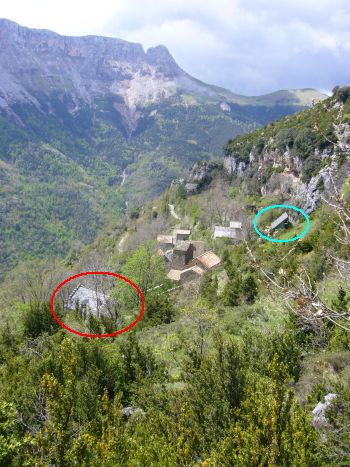MINIMISING OUR IMPACT
by Clare Fothergill, expedition leader and environmental consultant
There is a growing trend for companies to take into account the environmental impacts of their actions. In response to the current and anticipated climate changes being experienced worldwide, governments and consumers are placing pressure on organisations to count the true environmental cost of operations. Even an organisation such as Biosphere Expeditions whose business is focussed on conservation research, needs to ensure that it takes account of all the environmental impacts associated with its projects.
Without the research activities that Biosphere Expeditions supports and is involved with, less would be known and understood about individual species and habitats across the world, many of which are critically endangered. The work Biosphere Expeditions conducts is an essential contribution to the preservation of the natural world. The paradox arrives, however, when travelling to, working in and living close to remote and pristine environments actually results in some form of negative environmental impact. It is an inherent aspect of expedition life that there will be an effect created directly by the presence of the expedition team. It is essential to understand, therefore, what these impacts are and make a significant attempt to avoid or reduce these to a minimum wherever possible.
Biosphere Expeditions has always placed a great deal of emphasis on general environmental awareness on all of its projects. By the very nature of the work it is involved with, namely conservation, a key consideration when establishing new study areas is to avoid significant negative impacts wherever possible. To ensure that this is not purely lip service Biosphere Expeditions have now developed an ‘environmental checklist’ for all of their expeditions to incorporate key issues into the overall management of each project. The checklist covers a variety of topics from sourcing local supplies to formulating a waste management plan.

Revilla, the abandoned village that the expedition base (red circle) for the Spanish Pyrenees lammergeier project is in. The blue circle shows the station's solar panel. There is also a fully independent biological waste treatment system in place.
Many of Biosphere’s projects are located in protected or designated areas and to obtain permission to operate in such areas often requires certain environmental management practices to be followed. The use of energy and how it is generated is an integral part of the checklist, which ensures that low energy and/or renewable sources are utilised. Waste both general and human is another key issue, which has to be tackled effectively as part of an overall reduction in impact. Some countries that Biosphere Expeditions operates in have well established infrastructures that welcome segregated waste and provide recycling options. In other areas where such services are not available, the best environmental options have to be sought out. The approach is not to have a blanket policy that covers all localities, but rather to seek out the solutions that are the most effective and appropriate for that country or region. The checklist is applicable to both existing and new expeditions alike and requires expedition leaders, scientists, local support staff and team members to work closely together to ensure that environmental issues are not only considered, but that practical solutions are sought.
Whilst the Biosphere team are putting measures in place before an expedition occurs, team members arriving in country are also expected to make an effort to minimise their own impact. Minimising the use of water is an obvious issue to tackle particularly in localities when there are water shortages. Where off-road vehicles are used, training sessions are provided to team members to ensure that the local terrain is not damaged through erosion or the creation of excessive ruts. Team members are also encouraged to offset the carbon footprint of their journey to and from the assembly point on each expedition.
Biosphere Expeditions in collaboration with Climate Care have calculated the carbon footprint of each expedition, which includes flights of all staff members, fuel used for transportation of team members conducting research and energy utilised over the whole expedition. Whilst it is not possible to conduct conservation research on an international level without some impact on the levels of greenhouse gases, the offset programme ensures that Biosphere Expeditions projects are carbon neutral. The offset donation contributes to projects, which promote the use of renewable energy sources as well as researching energy efficient technologies.
Even for an organisation such as Biosphere Expeditions that has always had conservation as its core value, it is an increasingly pertinent exercise for organisations to incorporate environmental management into everyday operations. Whilst we all like to think we are doing our ‘bit’ for the environment, it is essential that we continue to strive to protect our increasingly vulnerable planet. •
Also read - Carbon neutrality and Biosphere Expeditions' position in the debate on flight emissions .
